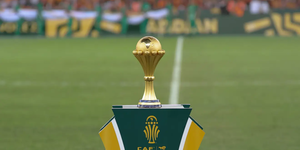Former U.S. President Donald Trump's decision to freeze foreign aid managed by the United States Agency for International Development (USAID) continues to impact Kenya’s healthcare system significantly.
The move has also sparked mixed reactions among stakeholders, particularly Non-Governmental Organizations (NGOs). The latest to weigh in on the crippling effects of the aid freeze is the head of CFK Africa Jeffrey Okoro, an NGO operating in Nairobi's Kibera slums.
In an opinion feature with Statnews, Okoro revealed that more than 1,000 patients at his healthcare clinic outside Nairobi lost access to lifesaving HIV treatments and other diseases that relied on foreign aid.
''Thousands more could no longer receive treatment for tuberculosis or contraception that prevents teenage pregnancies, hurting the well-being of our communities and threatening the progress we’ve made in their medical care,'' Okoro stated.
According to Okoro, there is a pervasive sense of fear — of losing access to more critical healthcare services and of livelihoods due to the freeze on funding.
Further, he revealed that even programs that were not directly supported by USAID have been affected as it disrupted the supply chain of medications in Kenya.
The freeze has resulted in a situation where patients have resorted to demanding more refill drugs for the lifesaving HIV drugs even as fears of more infections continue to rise.
''Patients are apprehensive about being able to continue their HIV and tuberculosis regimens when stopping would mean increased viral load or even death. They are asking for longer prescription refills and making desperate plans for what they might do if they cannot get their medication,'' he added.
''Public health professionals are worried that this could lead to a resurgence of HIV, undoing decades of progress against this terrible disease. Thousands of Kenyans have lost jobs due to the sudden rollback of aid. Our staff is witnessing a new sense of volatility in the health care industry and among nongovernmental organizations.''
Additionally, Okoro maintained that the progress that has been painstakingly built over the years in global health, in fighting generational poverty, and in sustainable development is at risk of unraveling with Trump's ban.
The government has continued to find itself at a crossroads following the aid freeze by Trump especially on the procurement of HIV drugs.
Before Trump's freeze, the antiretroviral (ARV) medications procurement was primarily funded through three main schemes: government financing, Global Fund donations, and the U.S. President’s Emergency Plan for AIDS Relief (PEPFAR).












